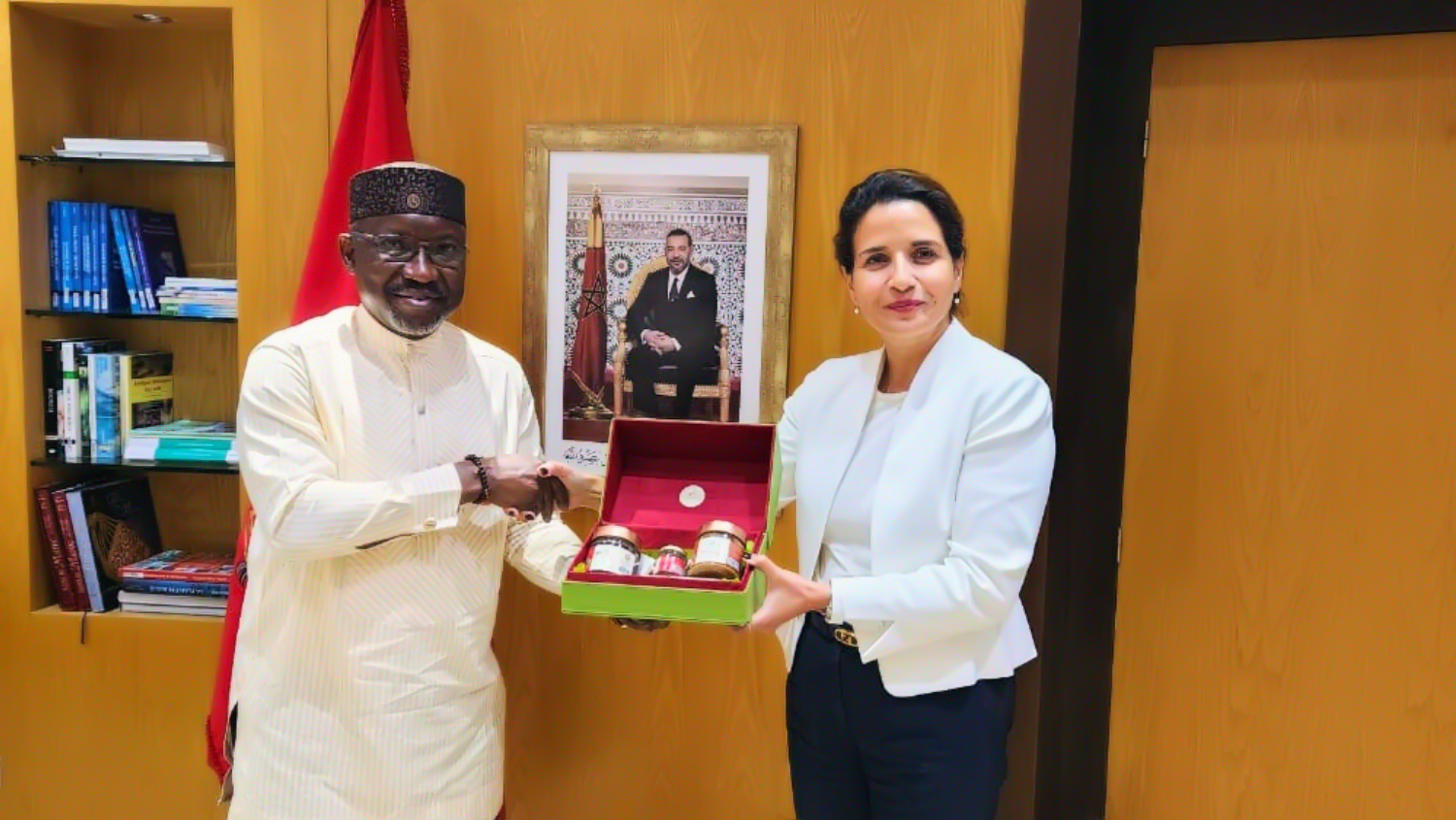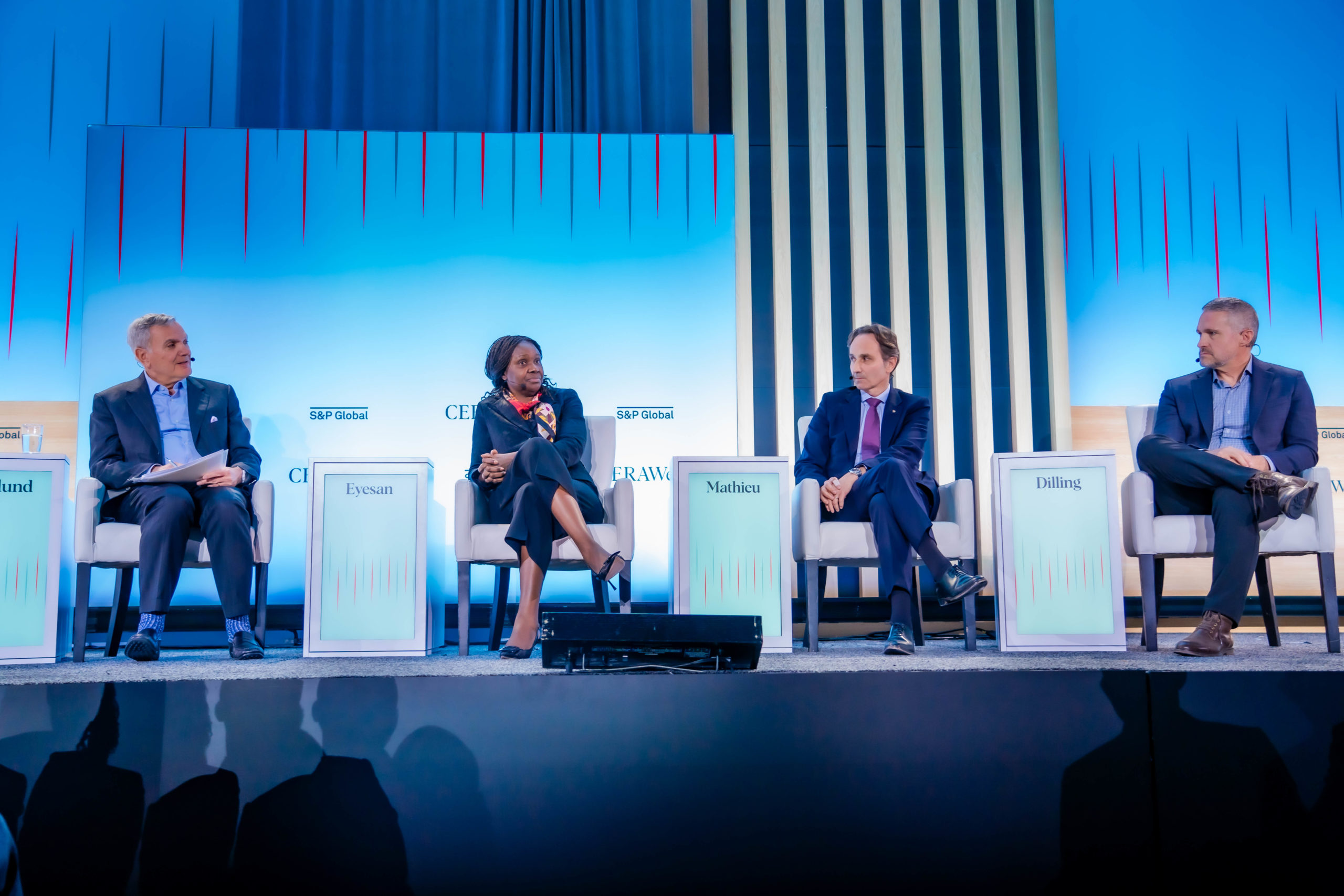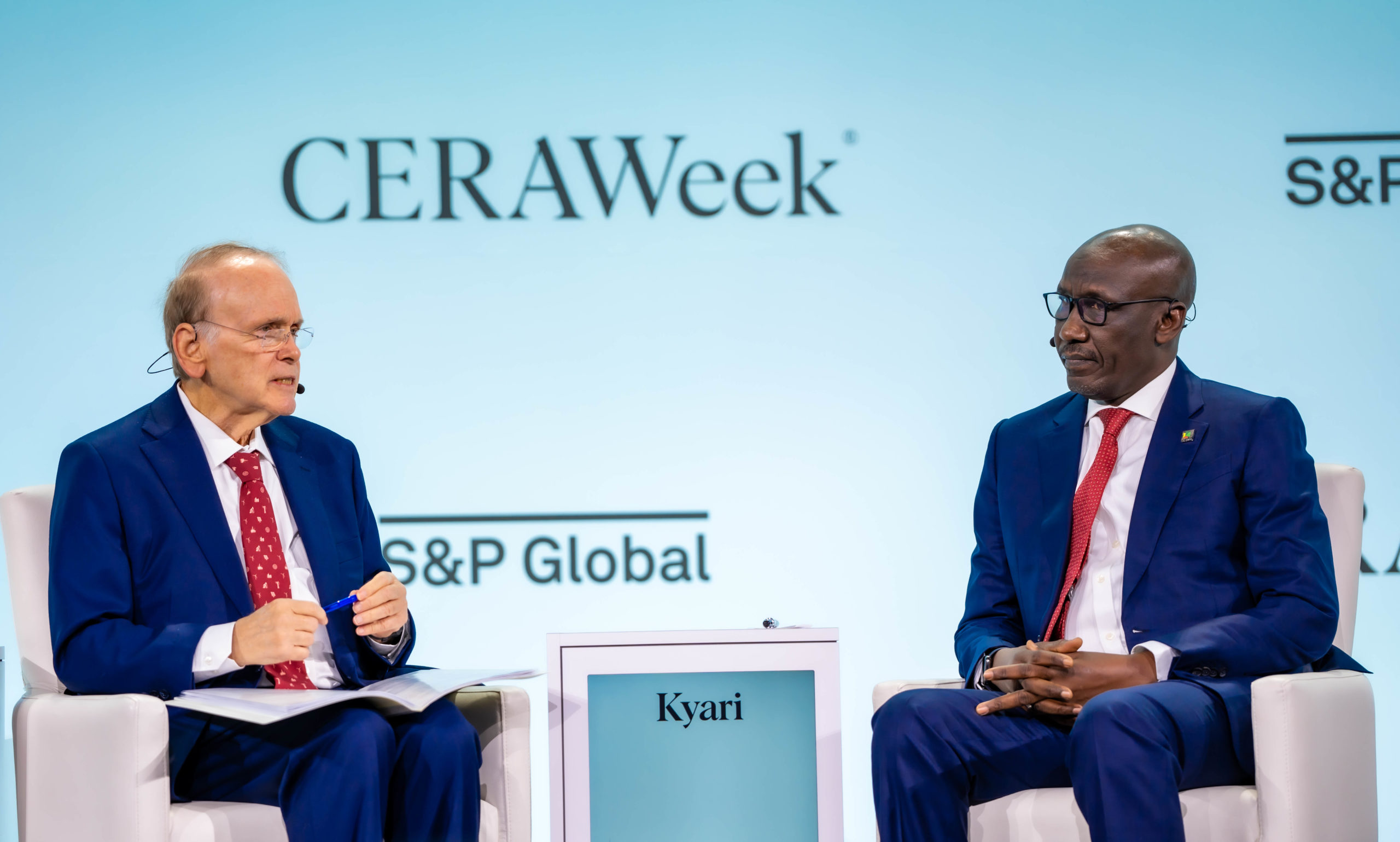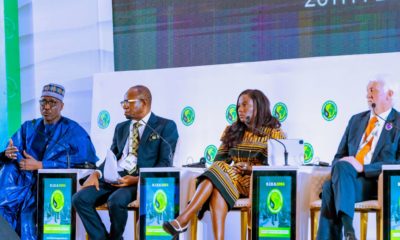Energy
FG In Talks With Morocco To Expedite Gas Pipeline Project

In a bid to fast-track the process of achieving the Final Investment Decision (FID) on the Nigeria-Morocco Gas Pipeline, the Federal Government has been in intense discussions with the Kingdom of Morocco.
To this end, the Honourable Minister of State for Petroleum Resources (Gas), Hon. Ekperikpe Ekpo, engaged the Moroccan Minister of Energy Transition and Sustainable Development, Ms. Leila Benali, on Wednesday, January 24, 2024.
The conversation was anchored by the Executive Vice President, Gas, Power & New Energy, NNPC Ltd, Olalekan Ogunleye, and the Director General of the Morocco National Office of Hydrocarbons and Mines (ONHYM), Mme Amina Benkhadra.
Biztellers reports that the talks focused on how to drive the partnership between the two countries to accelerate the Nigeria-Morocco Gas Pipeline Project in line with the series of Memoranda of Understanding (MoUs) signed between the two countries in Abuja in 2022.
Both parties emphasised the strategic importance of the project to the two countries and the entire African continent and the need to drive it to completion expeditiously in line with the objective of stemming energy poverty on the African continent.
Recall that the Cooperation Agreement for the 48” x 5,300Km pipeline from Nigeria to Dhakia (Morocco) and 1,700km from Dhakia to Northern Morocco was signed in 2017 with a capacity of 30 billion cubic meter (bcm) per year (equivalent of 3.0 billion standard cubic feet of gas per day).
The pipeline would traverse Republic of Benin, Togo, Ghana, Cote d’Ivoire, Liberia, Sierra Leone, Guinea, Guinea-Bissau, Gambia, Senegal, Mauritania, and terminate in Morocco with a spur to Spain.
Due to the international nature of the project, the ECOWAS Commission is saddled with the responsibility to, among other things, facilitate inter-governmental treaty and host government agreements, establishment of Pipeline Higher Authority, and alignment with the AU, the UN and other relevant international bodies.
Expectations are that the project, among other things, would help drive the monetisation of Nigeria’s gas resources, maintain NNPC Ltd.’s energy leadership in Africa, and promote economic and regional cooperation among African Countries.
Energy
Nigeria’s Gas Output Increases By 2.9%, Reaching 2.29 MSCF

Amid a slight increase in gas production, Nigeria’s oil output experienced a substantial rise in November 2024.
Gas production saw a 2.9% month-on-month (MoM) increase, reaching 2,292,951 million standard cubic feet (MSCF) from 2,292,471 MSCF in October.
However, on a year-on-year (YoY) basis, the growth was minimal, with a mere 0.02% increase in output for the first 11 months of 2024, compared to the same period in 2023.
READ MORE: Tinubu Mourns Ex-U.S. President Jimmy Carter, Celebrates His Legacy
The latest gas report from the Nigerian Upstream Petroleum Regulatory Commission (NUPRC) also revealed a 1.6% increase in domestic gas consumption.
A total of 606,658 MSCF was consumed locally, compared to 596,861 MSCF during the same period in 2023. Gas exports, meanwhile, rose by 6.9%, reaching 829,156 MSCF, up from 775,547 MSCF in the corresponding period of 2023.
This growth in exports continues to play a vital role in bolstering Nigeria’s foreign exchange earnings.
Despite these positive figures, sources close to the Ministry of Petroleum Resources (Gas) noted that oil remains the dominant force in Nigeria’s energy sector, with gas taking a secondary role.
On the other hand, the NUPRC’s oil production report revealed a remarkable surge.
Nigeria’s oil output, including condensates, rose by 13.3% year-on-year in November 2024, reaching 1.7 million barrels per day (bpd), up from 1.5 million bpd in November 2023. Month-on-month, oil production also increased by 10%, from 1.5 million bpd in October 2024.
Dr. Muda Yusuf, CEO of the Centre for the Promotion of Private Enterprises (CPPE), discussed the broader structural dynamics within Nigeria’s economy, highlighting the dominance of the non-oil sector.
In his 2025 Outlook, Dr. Yusuf noted that the non-oil sector contributed 94.43% to Nigeria’s GDP in Q3 2024, while the oil sector accounted for just 5.57%.
“However, the economy is characterized by a paradox of the oil sector contributing an estimated 90% of foreign exchange earnings, while the non-oil sector accounts for about 10%,” Dr. Yusuf said.
“This is a structural shortcoming in our economy which needs to be addressed, as sectors that contribute hugely to GDP have no corresponding contribution to foreign exchange earnings.”
He further emphasized the need to address the challenges faced by the non-oil sector, which include issues related to productivity, infrastructure, funding, and regulatory constraints.
“The policy implication is that more should be done to fix the challenges of productivity and competitiveness of the non-oil sector of the economy,” Dr. Yusuf added
Energy
JUST IN: NNPC Ltd Reopens Warri Refinery

The Nigerian National Petroleum Company Limited (NNPC Ltd) has announced that the 125,000-barrel-per-day Warri Refining & Petrochemicals Company (WRPC) in Warri, Delta State, has become operational.
This is coming about a month after the commencement of operations at the 60,000-barrel-per-day-old Port Harcourt Refinery.
The Group Chief Executive Officer, NNPC Ltd, Mele Kyari, made the disclosure during a tour of the facility on Monday.
ALSO READ: SERAP Urges Tinubu To Direct CCB To Publish President’s, VP’s, Others Assets
A video posted by Channels TV on Monday showed Kyari addressing a tour team, which included the Chief Executive Officer of the Nigerian Midstream and Downstream Petroleum Regulatory Authority (NMDPRA), Farouk Ahmed.
Before the tour commenced, Kyari explained that the inspection aimed to show Nigerians the level of work completed so far.
According to him, although the repairs on the facility are not yet 100 per cent complete, operations have commenced.
He said, “We are taking you through our plant. This plant is running. Although it is not 100 per cent complete, we are still in the process. Many people think these things are not real. They think real things are not possible in this country. We want you to see that this is real.”
Located in Ekpan, Uwvie, and Ubeji, Warri, the petrochemical plant produces 13,000 metric tonnes per annum (MTA) of polypropylene and 18,000 MTA of carbon black.
Commissioned in 1978 and managed by NNPC Ltd, the WRPC was built to supply markets in the southern and southwestern regions of Nigeria.
The mechanical completion of the facility was initially scheduled for the first quarter of 2024, according to the Spokesperson of the NNPC Ltd, Olufemi Soneye.
“Warri should be done by Q1 (first quarter) 2024,” Soneye stated.
The WRPC is one of Nigeria’s four refineries. Others include the old and new Port Harcourt Refining Company in Rivers State and the Kaduna Refining and Petrochemical Company in Kaduna State.
Energy
Dangote Partnership: MRS Urges Nigerians To Insist On N935/Litre Petrol Price Nationwide

MRS Oil Nigeria Plc, a prominent player in the Nigerian downstream oil industry, has implemented a new petrol price of N935 per litre across all its retail service stations nationwide.
The company has also called on Nigerians to monitor and report any outlets that fail to adhere to the new price structure.
Biztellers reports that this is consequent upon an announcement by the President of Dangote Industries Limited, Aliko Dangote, that the Dangote Petroleum Refinery has partnered with MRS Oil and Gas to offer petrol at N935 per litre at retail outlets, following a reduction in the ex-depot price from N970 to N899.50 per litre.
ALSO READ: Dangote Slashes PMS Price To N899.50k
It was gathered that MRS Oil Nigeria Plc has instructed all its outlets to implement the new price immediately, setting up a digital platform and monitoring team to ensure full compliance.
In a statement on Monday night, the company declared, “Petrol is now being sold at N935 at MRS Filling Stations nationwide. If you find any station not following this price, please report it. Call 08009447853 or email: NG-FMKPMGWHISTLEBLOWING@NG.KPMG.COM”
Emphasising the eco-friendly nature of its products, MRS Oil added, “We call on all petrol station owners to join MRS Oil Nigeria Plc in improving the supply chain of our beloved country, ensuring product quality and availability in every corner of Nigeria for the benefit of all Nigerians.”
In Lagos, commuters were seen queuing at MRS filling stations to purchase petrol, with many expressing their gratitude to the Dangote Petroleum Refinery and MRS Oil and Gas, urging other marketers to support the indigenous refinery rather than import off-spec products into the country.
A commuter at the MRS station at Alapere on the Lagos Ibadan Express way, Ibukun Phillips, could not hide her joy as her husband filled up their car.
“I am very happy today. This is a victory for Nigeria,” she said. “The price reduction is the best gift of the season. But beyond just the reduction, we are buying standard, eco-friendly petrol at a lower rate. My husband and I have decided we will only be using MRS from now on because we are confident in the quality of the product and supporting the economy.”
A commercial bus driver, Adio Ajibade described the price reduction as a great relief, especially during the festive season.
“The reduction is a great relief. It will reduce transportation costs and benefit Nigerians. God will continue to bless Alhaji Aliko Dangote,” he said.
A public affairs analyst and university lecturer, Dr. Tunde Akanni, said the collaboration between Dangote Petroleum Refinery and MRS Oil represents a significant step towards improving the affordability, quality, and sustainability of petroleum products in Nigeria.
According to Dr. Akanni, “this move will not only help ease the financial burden on Nigerians but also promote a more environmentally conscious approach to fuel consumption, benefitting both the economy and public health in the long term.”





















